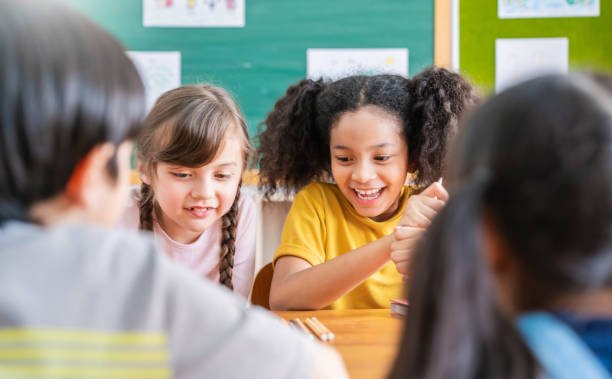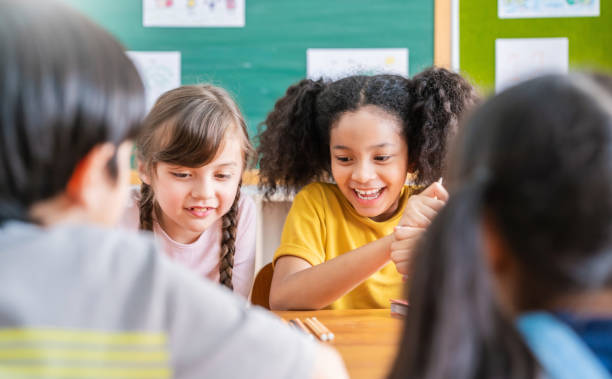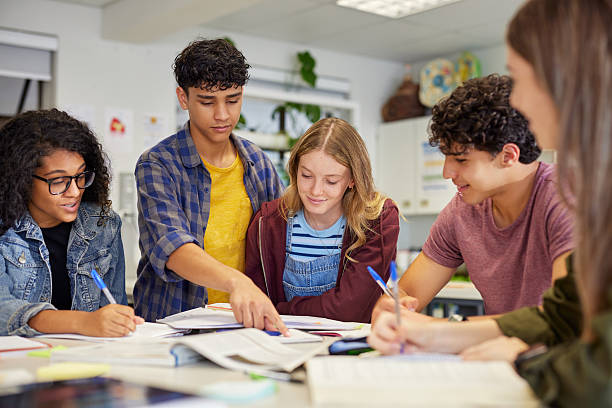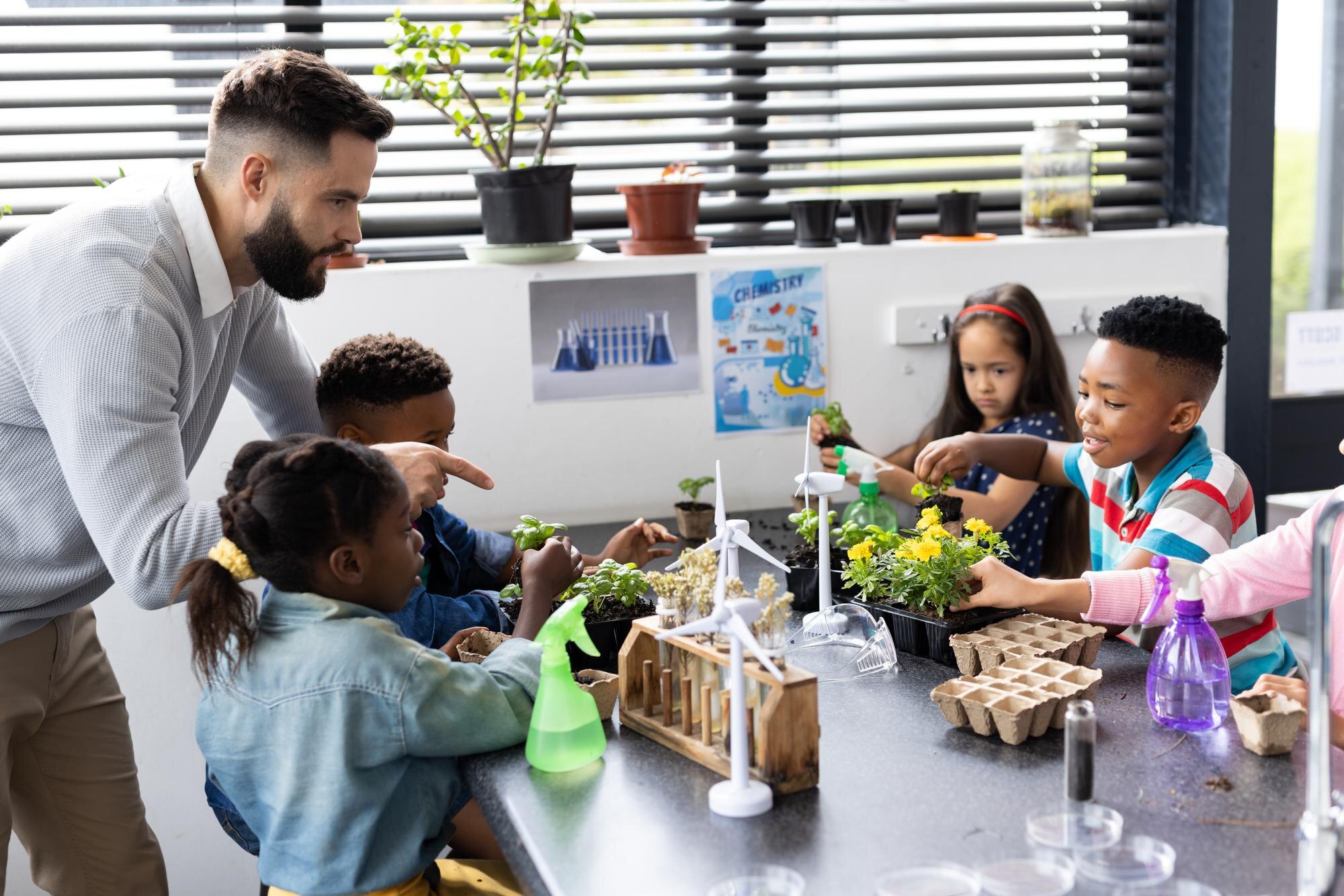
Group of pupil boy girl group study with teacher in classroom at elementary school. Student in primary school story telling. Children classroom. Education knowledge, success teamwork concept banner
Empowerment in Education: Top Strategies to Foster Resilience and Confidence in Gifted Students
Gifted students face unique emotional hurdles that can seem daunting to tackle. As educators, you hold the key to unlocking their resilience and confidence. Imagine your classroom as a garden where these bright minds can flourish with the right nurturing. In this post, you’ll find powerful strategies tailored to gifted education, paving the way for emotional resilience and confidence building. Ready to transform your approach and make a lasting impact? Let’s dive into these educator strategies that support gifted students like never before. Explore more here.
Building Emotional Resilience

Developing emotional resilience in gifted students is crucial in helping them navigate their unique challenges. Creating an environment that fosters resilience can empower these students to face adversity with confidence and strength.
Cultivating a Supportive Environment
Creating a supportive environment for gifted students involves recognizing their emotional needs and providing the resources they require. To build a nurturing classroom, educators should foster open communication, allowing students to express their feelings freely. This helps in forming a foundation of trust and understanding.
Listen actively: Pay attention to students’ concerns and offer empathy.
Encourage peer support: Facilitate group activities that promote teamwork and collaboration.
Provide resources: Offer access to counselors and mental health resources when necessary.
Real-world examples show that students who feel supported are more likely to develop resilience. For more insights on creating a supportive environment, you can explore this resource.
Addressing Perfectionism in Gifted Students
Gifted students often struggle with perfectionism, which can impede their emotional growth. Understanding perfectionism is key to addressing this issue. Perfectionism can lead to anxiety, preventing students from taking risks or accepting mistakes as part of the learning process.
Promote a growth mindset: Encourage students to see mistakes as opportunities for growth.
Set realistic standards: Help students set achievable goals and celebrate progress.
Model imperfection: Show students that even educators make mistakes and learn from them.
As illustrated in various studies, addressing perfectionism can significantly improve students’ emotional resilience. Visit this article for more strategies on managing perfectionism in gifted students.
Strategies for Confidence Building

Confidence building in gifted students is essential for their overall development. Confidence enables them to take on new challenges and explore their potential fully.
Encouraging Self-Expression and Creativity
Self-expression and creativity are vital for boosting confidence. Providing creative outlets allows gifted students to explore their interests and talents. Creativity encourages self-discovery and helps students appreciate their unique abilities.
Offer diverse creative projects: Encourage students to work on projects that align with their interests.
Create a safe space for expression: Ensure that students feel comfortable expressing themselves without fear of criticism.
Celebrate individuality: Recognize and appreciate each student’s unique contributions.
For practical tips on fostering creativity in gifted education, check out these strategies.
Setting Realistic Goals and Expectations
Goal-setting is crucial for confidence building. Realistic goals help students maintain motivation and see progress in their efforts. Setting achievable expectations reduces pressure and promotes a sense of accomplishment.
Break down larger goals: Encourage students to divide complex tasks into manageable steps.
Celebrate small victories: Recognize and reward progress, no matter how minor.
Adjust goals as needed: Help students adapt their goals based on changing circumstances.
Practical examples show that students who set realistic goals tend to experience higher confidence levels. Explore more on this topic here.
Educator Strategies for Gifted Students

Educators play a pivotal role in nurturing gifted students. Employing specific strategies can enhance their learning experience and address their emotional and intellectual needs.
Personalized Learning Approaches
Personalized learning tailors education to meet the unique needs of gifted students. This approach allows students to advance at their own pace, fostering both confidence and resilience.
Assess individual needs: Regularly evaluate each student’s strengths and weaknesses.
Develop customized learning plans: Adapt curricula to challenge students appropriately.
Incorporate student interests: Align learning activities with students’ passions.
Research indicates that personalized learning can significantly improve students’ academic and emotional outcomes. To learn more about implementing personalized learning approaches, visit this blog.
Creating a Collaborative Classroom Community
Building a collaborative classroom community involves fostering teamwork and peer support. This approach can enhance students’ social skills and emotional well-being.
Encourage group projects: Assign tasks that require collaboration and communication.
Promote peer mentoring: Pair students to support each other’s learning journey.
Facilitate open discussions: Create forums for students to share experiences and learn from one another.
Case studies reveal that a collaborative classroom environment can boost students’ confidence and resilience. For more on creating such a community, check out this resource.
🌟📚✏️

A certified Heal Your Life® Coach with 20+ years in education and emotional development. Supports gifted teens in navigating anxiety, perfectionism, and identity challenges, while equipping parents with practical tools for lasting transformation. Sessions blend emotional healing, mindset mastery, and strategic empowerment.



